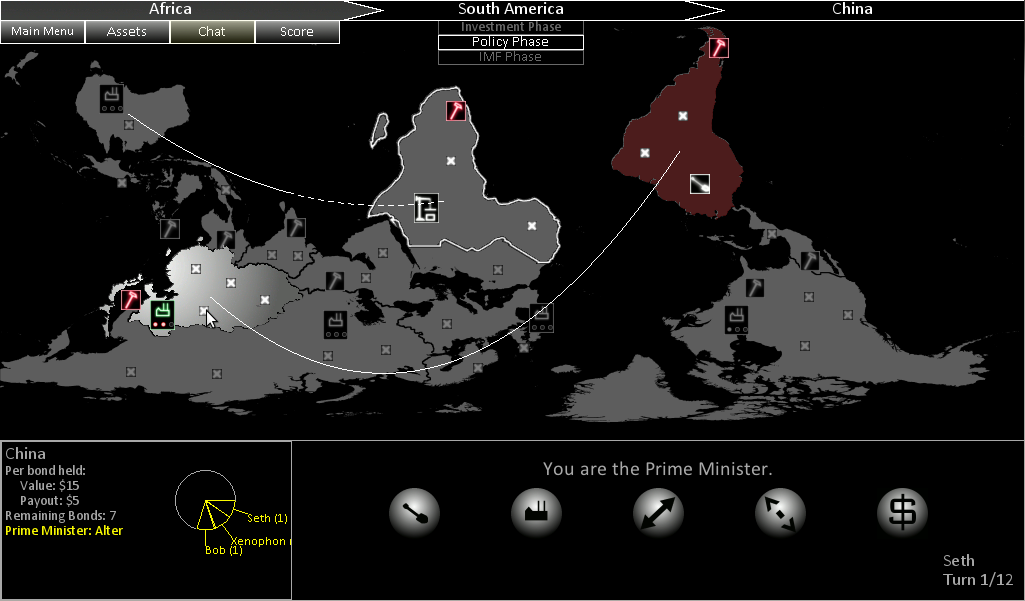We found the unofficial computer game of the Mitt Romney campaign

Most world-strategy games involve the global marshaling of massive military forces – think Risk. Now, just in time for a presidential election that may well be won by a champion of unfettered global capitalism, comes a strategy game for our time, one that you win, literally, by having more money in your Swiss bank account than everyone else.
– – –
Last September, just out of college and out of work in Boston, then-22-year-old Seth Alter spent his nights spitballing about political theory over sessions of Euro-style board games like Settlers of Catan. One night, a friend, in jest, wondered what a game based solely on the Marxist theory of neocolonialism – in which developed-world institutions control developing-world countries by purely financial means – would look like.
Alter took him seriously. A year later, the result is Neocolonialism: A Game of Global Financial Ruin, the first world-strategy game in which all of the coercion and all of the conquering is purely financial.
“It turns out I’m a far leftist,” Alter, now a special-education math teacher, says. “At Wesleyan [University] it was hard to tell.” This is, of course, the same Wesleyan that was once voted the second-most annoying liberal arts school in the nation.

To gain control over the world economy, players snap up regional sovereign bonds, which in the game’s shorthand, give their owner votes in that region’s parliament. The more votes the player has, the more they can influence policies that drive up the value of their bonds. To win the game, players have to liquidate their bonds into Swiss Bank Money; whoever has the most of it at the end of a game of Neocolonialism, wins. You don’t even have to disclose tax returns.
To succeed at the game, players have to learn and abide by the rapacious rules of global capitalism, keeping the distribution of resources, and the distribution of money, highly unequal. “To win,” Alter says, “you have to keep certain countries undeveloped.”
Neocolonialism, is not the first, merely the latest and most topical, example of a game that through its rules of play explains the workings of a complex market system. Anyone who has ever endured the smug extortions of a friend who owns Park Place and Boardwalk knows well that Monopoly often turns into a bilking of the poor by the rich.
Seth Alter, who grew up on strategy classics Civilization and Alpha Centauri, hopes to continue making educational games. Next on his agenda: a game based on local politics with the working title Bloomberg, named for the mayor of our fair city and a paragon of capitalism in his own right, Michael Bloomberg.



